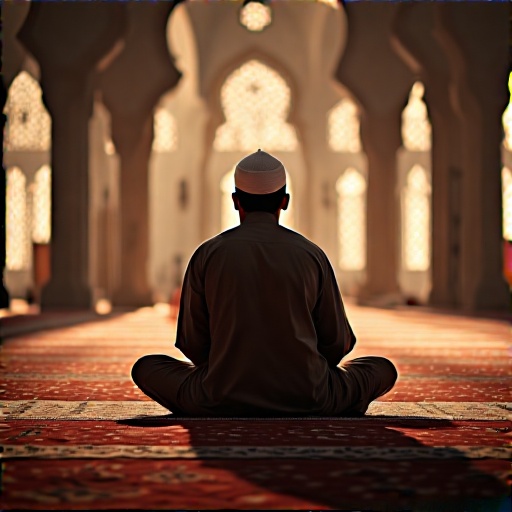In a world where self-worth is often measured by material success or social validation, Islam offers a profound perspective: every human being is inherently valuable because Allah Himself has honored us. The Quranic concept of Ashraf al-Makhluqat (the noblest of creations) underscores humanity’s elevated status, but what does this truly mean? How does this divine honor shape our purpose, responsibilities, and relationship with other creations—even angels?
The Divine Honor Bestowed Upon Humanity
Inherent Dignity: A Gift From the Creator
Allah declares in the Quran:
۞ وَلَقَدۡ كَرَّمۡنَا بَنِیۤ ءَادَمَ وَحَمَلۡنَـٰهُمۡ فِی ٱلۡبَرِّ وَٱلۡبَحۡرِ وَرَزَقۡنَـٰهُم مِّنَ ٱلطَّیِّبَـٰتِ وَفَضَّلۡنَـٰهُمۡ عَلَىٰ كَثِیرࣲ مِّمَّنۡ خَلَقۡنَا تَفۡضِیلࣰا
And We have certainly honored the children of Adam and carried them on the land and sea and provided for them of the good things and preferred them over much of what We have created, with [definite] preference.
[17:70]
This verse establishes three key truths:
- Universal Honor: Every human, regardless of race, wealth, or faith, is born with innate dignity (karamah).
- Stewardship Over Resources: Allah subjugated natural resources—land, sea, and sustenance—for human benefit.
- Preference Over “Many” Creations: The phrasing “many of Our creations” indicates humans surpass countless beings but not necessarily all (e.g., angels may hold distinct roles).
Created in the “Best Form”: A Physical and Spiritual Blueprint
Allah further emphasizes human excellence:
لَقَدۡ خَلَقۡنَا ٱلۡإِنسَـٰنَ فِیۤ أَحۡسَنِ تَقۡوِیمࣲ
We have certainly created man in the best of stature;
[95:4]
This “finest form” refers to both our physical perfection—balanced anatomy, intellect, and senses—and our spiritual potential to embody virtues like justice, mercy, and wisdom. The Prophet Muhammad ﷺ illustrated this dignity in action when he stood for a Jewish funeral procession, stating, “Is it not a human soul?” (Sahih al-Bukhari 1312).
Humans vs. Angels: Understanding the Hierarchy
The Prostration of Angels to Adam (AS)
The Quran recounts Allah’s command to angels:
وَإِذۡ قُلۡنَا لِلۡمَلَـٰۤىِٕكَةِ ٱسۡجُدُوا۟ لِـَٔادَمَ فَسَجَدُوۤا۟ إِلَّاۤ إِبۡلِیسَ أَبَىٰ
And [mention] when We said to the angels, “Prostrate to Adam,” and they prostrated, except Iblees; he refused.
[20:116]
This prostration symbolized recognition of Adam’s (AS) divinely endowed knowledge and his role as Allah’s vicegerent (khalifah) on Earth (Quran 2:30). However, scholars clarify it was an act of obedience to Allah, not worship of humans.
Angels and Humans: Complementary Roles
While humans excel in free will and moral growth, angels are sinless servants who “do not disobey Allah’s commands” (Quran 66:6). Imam Al-Ghazali explains that angels symbolize unwavering obedience, while humans—through struggle against their lower selves—can attain higher spiritual ranks.
Contemporary Relevance: Living Up to Our Divine Honor
1. Rejecting Modern Forms of “Measurement”
In an era obsessed with productivity and superficial metrics, Islam reminds us that our value isn’t tied to achievements. As the Quran states, “The most noble among you in Allah’s sight is the most righteous” (49:13).
2. Upholding Universal Human Rights
The Prophet ﷺ said, “All creatures are Allah’s dependents, and the most beloved to Him are those who benefit His dependents” (Al-Mu’jam al-Awsat 6067). This extends to advocating for justice, feeding the hungry, and protecting the environment.
3. Balancing Ambition With Humility
While Islam encourages striving for excellence, it warns against arrogance. The story of Iblis—who refused to bow due to pride in his fiery origin—serves as a timeless lesson (Quran 7:12).
A Call to Honor and Action
Allah’s honor is both a gift and a responsibility. To live as Ashraf al-Makhluqat means:
- Recognizing the divine spark within ourselves and others.
- Using our intellect and resources for societal good.
- Striving for piety, the true measure of nobility.
In the words of Imam Ali (RA), “The worth of every person lies in the good they do.” Let this truth guide us to embody the dignity Allah has bestowed—transforming not just our lives, but the world.







